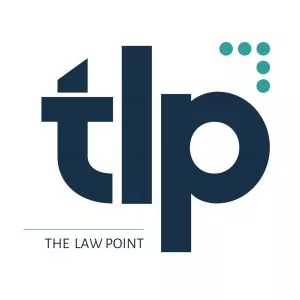The outbreak of Covid-19 pandemic has resulted into lockdown in all the spheres of work. However, judiciary has not halted in such a scenario and is striving hard to dispense justice by evolving virtual methods of adjudication. The present article attempts to summarise some of the orders passed by Supreme Court and High Courts during the third phase of lockdown.This article forms part of a series where we analyse the judicial activities during the different phases of lockdown.
1. It is the duty of the State to ensure that safe travel and accommodation facilities are made available to the migrant workers.
Name of the case: K. Ramakrishna, s/o. K. Rangaiah v. The Union
of India and others.
Case Number: Writ Petition (PIL) No.101 of 2020
Forum: Andhra Pradesh High Court
Date of Order: 15.05.2020
Challenge in brief: The Writ Petition was filed under Article 226 of the Constitution of India against the order of the State Government prohibiting the migrant workers to travel to their respective hometowns. It was argued that the failure to provide for arrangements for safe travel, food and accommodation facilities to the migrant workers is in violation of their fundamental rights.
Order: The Court underlined the gravity of the situation and reaffirmed its role as a protector of the marginalised section. The Court also took into account the ever expanding scope of "life" under Art 21 of the Constitution of India and accordingly directed the State Government to adopt certain supplemental measures like strengthening the medical, food and the transportation facilities for migrant workers. The Court clarified that such direction will not inhibit the States from implementing their respective policies related to quarantine.
2. Safety measures and precaution to be maintained for prisoners at Jaipur district jail
Name of the case: Suo Motu V. State of Rajasthan.
Case Number: D.B. Civil Writ Petition No.5618/ 2020
Forum: Rajasthan High Court
Date of Order: 17.05.2020
Challenge in brief: The suo moto PIL was registered on the basis of news reported in various news channels of Rajasthan stating that a huge number of prisoners (approx. 55), both convicts and undertrials at Jaipur district jails were detected corona positive.
Order: Taking into account the circumstances posed by the outbreak of Covid-19 pandemic, the Court directed the state government to maintain high standards of care for the jail inmates. It also issued certain directions in this regard such as incorporation of the COVID-19 SOP for jails so that the accused will be tested by local medical authorities for coronavirus and if found negative then only the accused person will be remanded to jail/custody. The jail authorities who are in direct contact with the prisoners also require special attention to ensure that such virus is not transmitted to them or to their families and authorities will ensure test of jail staff on a regular random basis. The isolation wards in the jails shall be inspected by the medical officers of each district and take steps which will be necessary for maintaining cleanliness and sanitization. The aforesaid directions were made to the Stateof Rajasthan in order to incorporate the same in their SOP for jails for the purpose of the present COVID-19 pandemic.
3. Private unaided schools cannot collect tuition fees if the student is not attending online classes.
Name of the case: Japinder Singh V. Union of India and
others.
Case Number: Writ Petition(PIL)No.59/ 2020
Forum: Uttarakhand High Court
Date of Order: 12.05.2020
Challenge in brief: The State Government issued an order on 02.05.2020 whereby private unaided schools in the state were permitted to conduct classes online. However, these private schools were prohibited from collecting any fees other than tuition fees that too only if they provide online classes. The allegation in the present writ petition is that these private schools are coercing parents to pay the tuition fees.
Order: The Court observed and reiterated that the object of Government Order dated 02.05.2020 is to ease the burden on parents, who do not even have the means to earn their livelihood in this period of crisis, in being required to pay the huge fees which these private institutions charged. As Uttarakhand is a hilly state without proper internet connection, a substantial number of students are unable to access such online classes. Thus, parents of those children who are unable to access online classes cannot be coerced to pay the tuition fee for the same. If any complaint is received then the concerned Nodal officers shall take prompt action against the erring educational institutions who are coercing parents, to pay the tuition fee of the children..
4. Principle of "No-work No-wage" not applicable in present extraordinary situations
Name of the case: RashtriyaShramikAghadi v. The State of
Maharashtra and others.
Case Number: Writ Petition No.4013 of 2020
Forum: Bombay High Court
Date of Order: 12.05.2020
Challenge in brief: The present Writ Petition was filed raising grievances about non-payment of wages of security guards and health workers of the Petitioner Union. It was contended that these people were willing to offer their services but are precluded from performing their duties owing to the lockdown imposed across the country..Although the matter is pending before the competent authorities under the Industrial Disputes Act, 1947 and the Contract Labour (Regulation and Abolition) Act, 1970, the petitioners approached the Court for urgent relief.
Order:The Court observed that the labourers were ready to work but are unable to on account of the present extraordinary situation. In such, circumstances, the principle of "no work no wages" cannot be made applicable. Therefore, in the interim, the Court directed the District Collector, Osmanabad, in his capacity as President of Respondent No.2 Trust/ Principal Employer, to ensure that full wages, save and except food allowance and conveyance allowance (for employees who are not required to report for duties) aredisbursed by the contractors to the concerned employees for the month of March, April and May 2020.
Note: A similar question of law was also argued before the Supreme Court of India in the matter of Ficus Pax Private Ltd. & Ors. v. Union of India & Ors. [Writ Petition (C) Diary No. 10983 OF 2020]. Vide an order dated 12.06.2020, the Supreme Court has ordered that the aspect of the employers to pay wages can be negotiated by the employers with the workers/employees and enter into a settlement. If any settlement cannot be achieved then the parties can submit a request to concerned labour authorities who are entrusted with the obligation under different statutes to conciliate the dispute.
5. Quarantine period cannot be strictly restricted to 14 days.
Name of the case: Amit Bhargava V. The State (NCT of
Delhi).
Case Number: Writ Petition(C) 3016/ 2020
Forum: Delhi High Court
Date of Order: 11.05.2020
Challenge in brief: The Petitioner, came in contact with a person who was a pizza delivery boy on 24th March 2020. The Delivery Boywas subsequently tested positive for COVID-19 on 14th April, 2020. The petitioner was placed under home quarantine, vide notice dated 15th April, 2020, for the period 24th March, 2020 till 20th April, 2020, i.e. for a period of 28 days. Subsequently, vide a second notice, dated 17th April, 2020, the period of home quarantine of petitioner, was renotified as 14th April, 2020 to 28th April, 2020. The Petitioner challenged the extension of such quarantine beyond the period of 14 days as being violative of Guideline for Home Quarantine" issued by the Directorate General of Health Services (DGHS) 14th March, 2020 and the Delhi Epidemic Diseases, COVID-2019 Regulations, 2020
Order:The Court adopted an approach which is not hyper-legalistic, but it is pragmatic and practical and would not disturb the efforts to tide over the pandemic. In the opinion of the Court, the period of 14 days stipulated in the Guidelines of 14th March, 2020 is not mandatory, but is intended to serve as a general guideline. The Court observed that even the executive is traversing uncharted territory while formulating and implementing its policy to deal with the pandemic. In such circumstances, the executive must be afforded an opportunity to formulate and implement its policy as meaningfully and efficiently as possible. Decision of extension of the quarantine period taken in the context of the COVID-2019 crisis does not involve legal or constitutional violation, therefore the Courts should necessarily be slow in subjecting executive action to judicial scrutiny.
6. Hyper-legalistic interpretation of the various Clauses in the Guidelines issued by the Central Government to tide over the COVID-19 crisis, would be fundamentally misconceived.
Name of the case: Anil. K. Aggarwal, Advocate and Anr. V. Union
of India and Ors.
Name of the case: Anil. K. Aggarwal, Advocate and Anr. V. Union of
India and Ors.
Forum: Delhi High Court
Date of Order: 01.05.2020
Challenge in brief:- The Petitioner had approached the Court seeking for issuance of writ of mandamus directing the respondents to strictly enforce the Covid-19 related statutory orders and Guidelines both dated 15.04.2020 in letter and spirit and prevent misuse of relaxations by any person or Ministry, Government Department/Office and Central Public Enterprises/Government Companies and take all necessary steps to immediately close the offices and operations of the non-exempted Central Public Enterprises/Government Companies. The issue arose on account of reopening of the aforementioned organisations engaged in non-essential services during the period of lockdown. The Writ Petition also seeks initiation of criminal proceedings against the Heads of such Public Enterprises/Government Companies, for having breached the lockdown imposed by the Government.
Order:-The Court reiterated that the courts cannot sit in appeal over the executive policy, in such matters least of all in a situation of crisis, such as that with which the administration is grappling at present.The Court emphasised that, any hyper-legalistic interpretation of the various Clauses in the Guidelines issued by the Central Government to tide over the COVID-19 crisis, would be fundamentally misconceived. What is required, in these circumstances, is a purposive and realistic understanding of the Guidelines. A balanced approach between the need for tackling the present pandemic and financial and fiscal needs of the economy is the need of the hour. It was observed that the PSUs, specifically named in the present petition, as well as other such industrial undertakings, are engaged in production of goods and services which impact, seriously and substantially, the lives of the citizens of the country. As per the guidelines, additional activities can be operationalised provided that there is strict compliance with the social distancing norms. Therefore, unless there is a certain violation of such guidelines, the court interference is not warranted.
7. Limitation of filing of final reports under section 167 of Cr.P.C not extended.
Name of the case: Settu S/o. Govindaraj. V. The State, rep by
The Inspector of Police, Vallam Police Station.
Case Number: CRL OP(MD) No. 5291 of 2020.
Forum: Madras High Court (Hon'ble Justice G.R.
Swaminathan)
Date of Order: 08.05.2020
Challenge in brief:-The Petitioner had approached the Court seeking bail under S. 439 of Cr.P.C. for offences under Sections 392 and 397 of I.P.C. It was argued that the Petitioner is entitled to default bail since the final report has not been filed within the mandatory time limit. On the other hand, the Respondents had argued that in light of various orders passed by the Legislature and Judiciary granting extension of limitation, the period of filing final reports also stood extended. Thus, the court was posed with the question whether the order passed by the Hon'ble Supreme Court extending limitation will apply to section 167 (2) of Cr.P.C also.
Order: Section 167 (2) of Cr.P.C. does not bar the filing of final report even after the period specified therein.The implication of Section 167 (2) is that if the final report is not filed within the time limit prescribed therein, the magistrate will be divested of the jurisdiction to authorise the detention of the accused person beyond the said period, if the accused furnishes bail. In view of the same, denial of compulsory bail to the Petitioner would definitely amount to violation of his fundamental right under Article 21 of the Constitution of India.. Therefore, in such circumstances, it cannot be said that the time limit stands extended.
8. No separate petition under Section 29A of the Arbitration & Conciliation Act, 1996, would be required to be filed where the time limit has expired.
Name of the case: Rategain Travels Technologies Pvt Ltd. V.
Ujjwal Suri
Case Number: O.M.P (MISC) 14/2020
Forum: Delhi High Court
Date of Order: 11.05.2020
Challenge in brief: The present petition was filed under Section 29A of the Arbitration and Conciliation Act, 1996 seeking extension of time for passing of the award by the Arbitral Tribunal.
Taking into account the difficulties faced by lawyers and litigants amidst COVID-19and with a view to obviate such difficulties it was directed that all periods of limitationprescribed under the Arbitration and Conciliation Act, 1996 and under section 138 of theNegotiable Instruments Act 1881 shall be extended with effect from 15.03.2020 Thus, in all cases where the time limit for passing of the award expired during the period of lockdown, no separate petition under Section 29A of the Arbitration & Conciliation Act, 1996, would be required to be filed.
9. Quarantine facilities cannot be used by the police to keep away people, who accordingto them, are of nuisance value.9. Quarantine facilities cannot be used by the police to keep away people, who accordingto them, are of nuisance value.
Name of the case: Mahendra Singh. v. Commissioner of Police
& Ors.
Case Number: LD/VC/OCR/14/2020
Forum: Bombay High Court
Date of Order: 05.05.2020
Challenge in brief: The present petition was filed seeking issuance of writ of Habeas Corpus directing Respondent No. 1 to produce one Mr. K Narayanan before this court and then set him at liberty.
Order: It was observed one Mr. K. Narayanan was deliberately and malafidely sent to the Quarantine Centre for several reasons, including his animosity with the concerned Sr. police official and not because he was suspected to be a Covid-19 patient. The withholding of Mr. K. Narayanan's mobile, non-disclosure of his Covid-19 report, conduct of the officers and circumstances in which he was sent to the Quarantine Centre, were unjustified. The Court directed that the Quarantine facilities cannot be used by the police to keep away people, who according to them, are of nuisance value. Quarantine facilities cannot be used as preventive detention or as a punitive measure.
Originally published by The Law Point, July 2020
The content of this article is intended to provide a general guide to the subject matter. Specialist advice should be sought about your specific circumstances.



